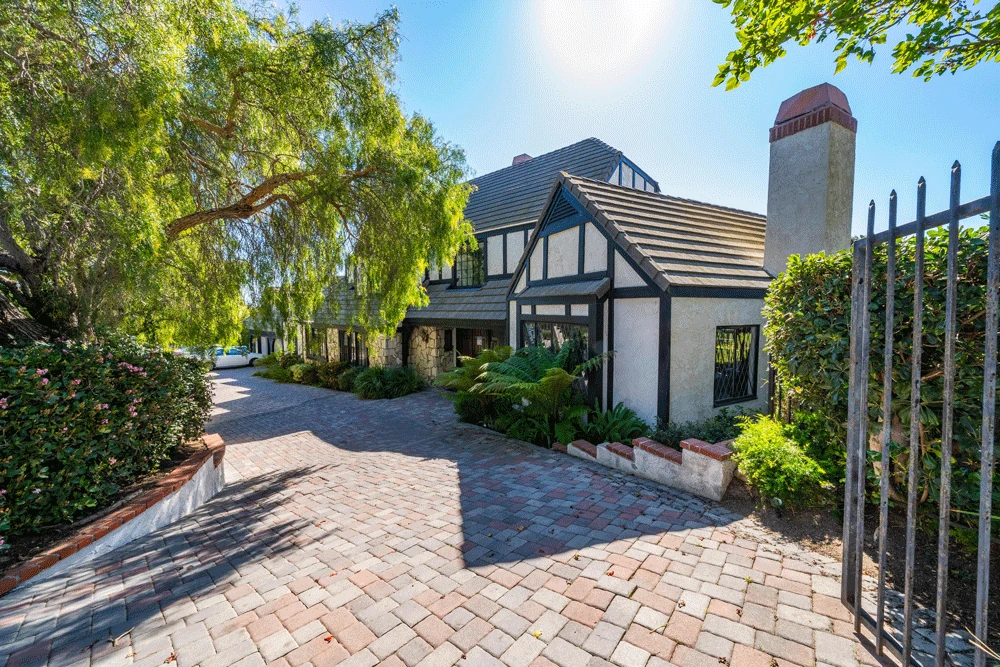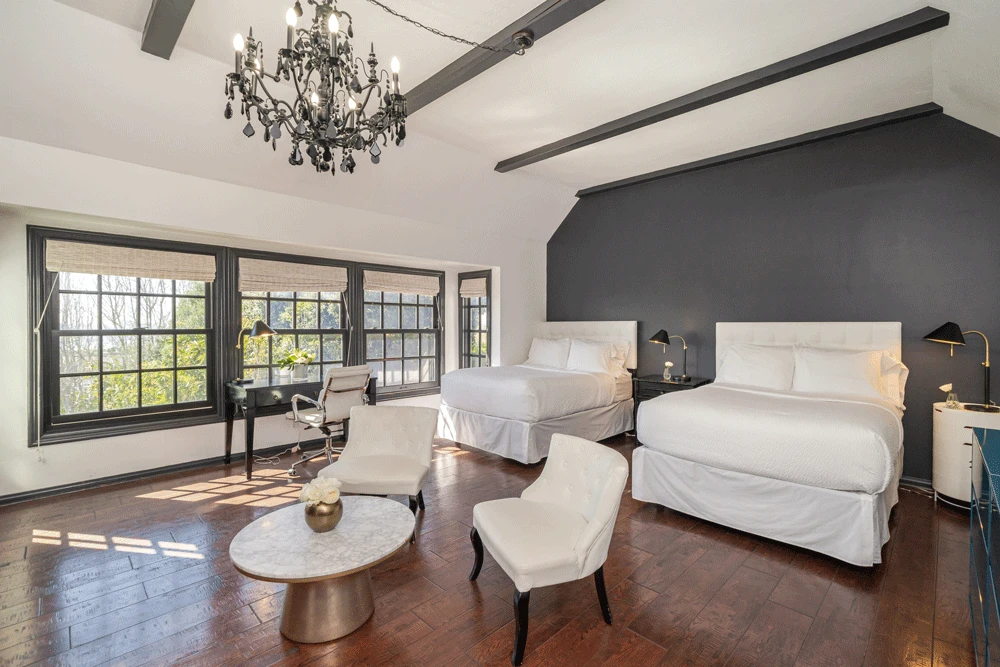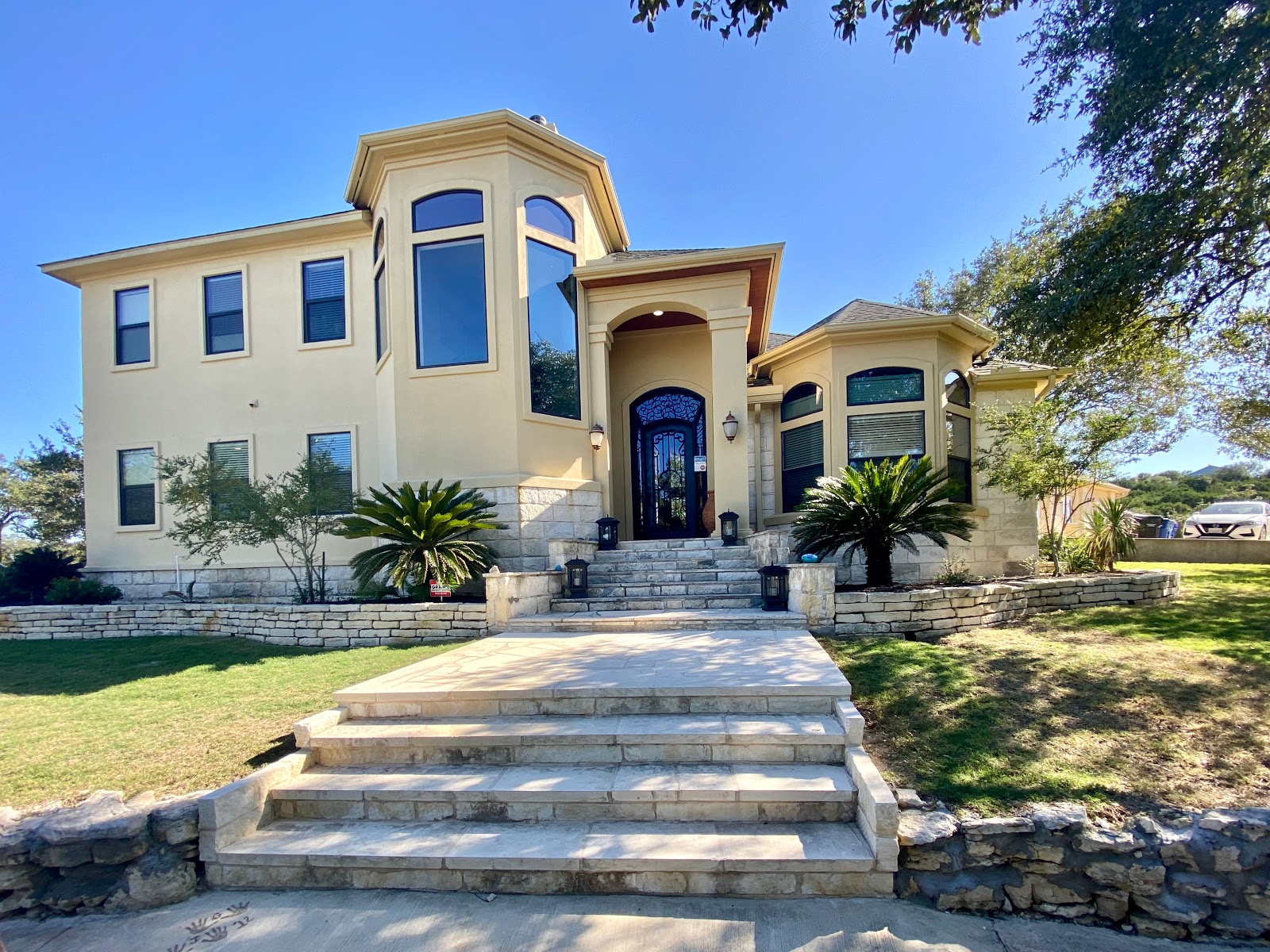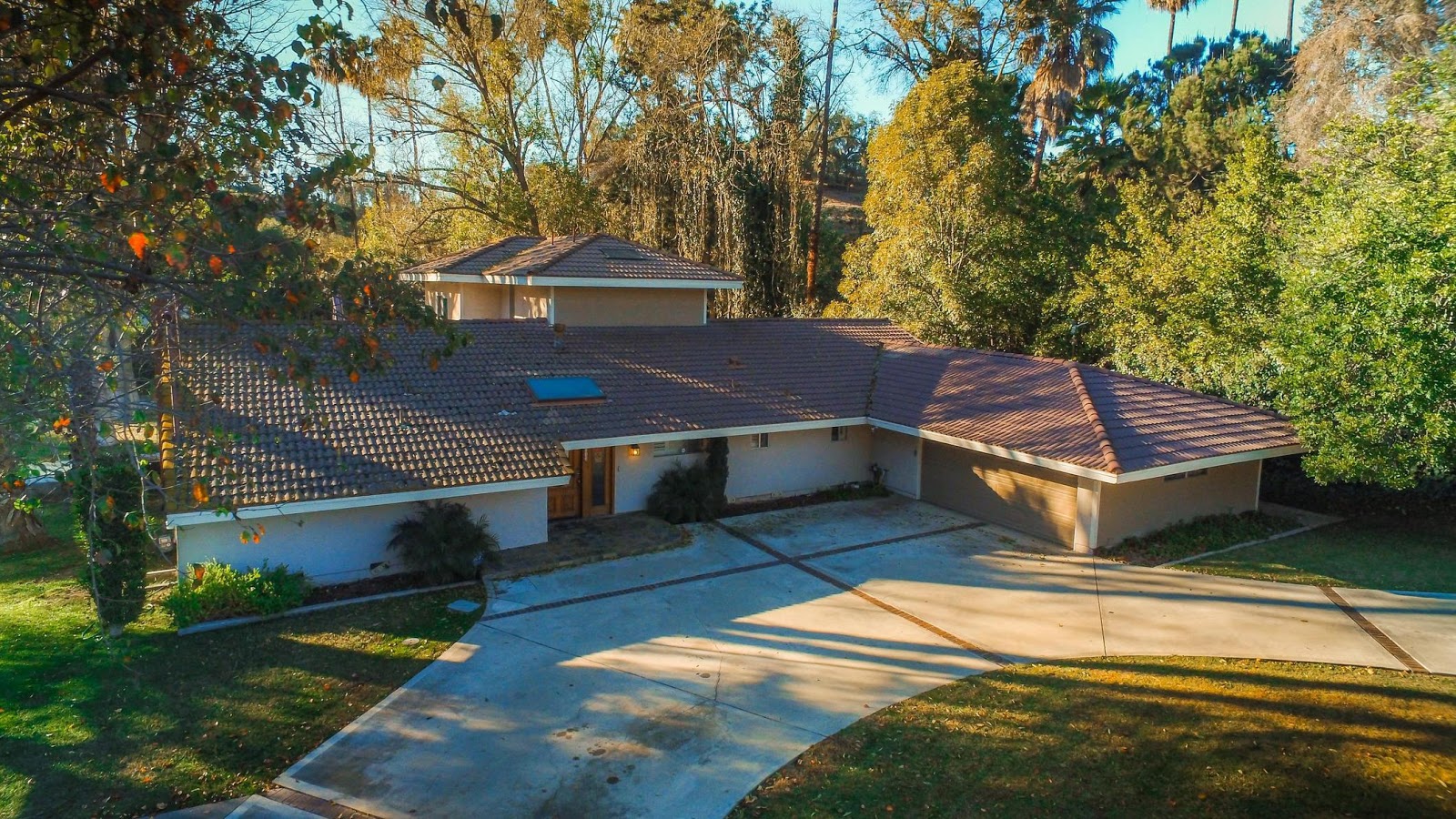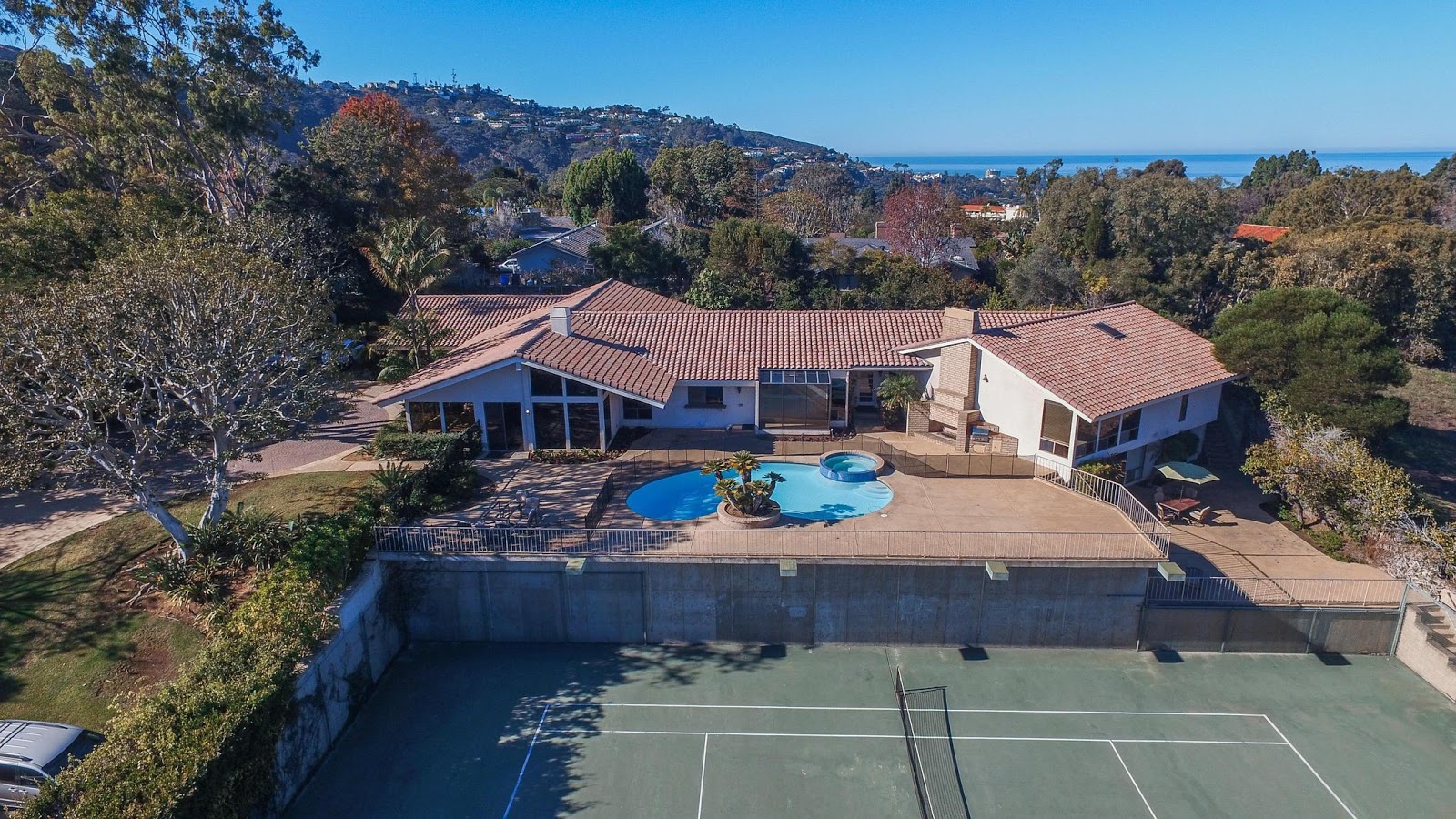Harvester House (Cliffside Malibu)
Overview
Cliffside Malibu, located in Malibu, California, is a premier residential addiction treatment facility that offers a comprehensive and individualized approach to recovery. Serving both men and women aged 18 and older, Cliffside Malibu specializes in treating drug and alcohol addiction, nicotine addiction, and co-occurring mental health disorders. The center offers a full continuum of care, with FDA-approved Medication-Assisted Treatment (MAT) for detoxification, residential inpatient treatment, where they receive 24/7 care in a structured and supportive environment. The facility also provides a Partial Hospitalization Program (PHP) and outpatient services for those who require flexible treatment options. For clients seeking continued support, Cliffside Malibu offers sober living homes, allowing individuals to maintain stability and focus on their recovery in a community-oriented setting.
The therapeutic offerings are extensive and tailored to address the unique needs of each client. Therapies include Individual Therapy, Family Therapy, Group Therapy, and Couples Therapy, ensuring that both the individual and their support system are engaged in the recovery process. The center also provides specialized therapies such as Cognitive Behavioral Therapy (CBT), Dialectical Behavior Therapy (DBT), and Eye Movement Desensitization and Reprocessing (EMDR), all of which are highly effective in addressing the underlying issues contributing to addiction. Additional services include Life Skills Training, Fitness Therapy, and Nicotine Replacement Therapy, which help clients build healthier lifestyles and coping strategies.
Cliffside Malibu’s commitment to excellence is reflected in its numerous accreditations and recognitions. The center has been named one of America’s Best Addiction Treatment Centers by Newsweek and is accredited by The Joint Commission and LegitScript, underscoring its dedication to providing the highest standards of care, safety, and ethical treatment.
Harvester House (Cliffside Malibu) at a Glance
Payment Options
- Cash or self-payment
- Private health insurance
- Financial aid
- Federal military insurance (e.g. TRICARE)
- Self-pay options
Assessments
- Comprehensive mental health assessment
- Comprehensive substance use assessment
Age Groups
- Adults
- Young adults
Ancillary Services
- Acupuncture
- Diet and exercise counseling
- Family psychoeducation
- Supported housing
Accreditations
The Joint Commission:

The Joint Commission, previously known as JCAHO, is a nonprofit organization that accredits rehabilitation organizations and programs. Established in 1951, its mission is to enhance the quality of patient care and showcase excellence in healthcare delivery.
LegitScript:

Only after successfully completing a rigorous application process, programs and services achieve LegitScript certification. This process, which commenced in 2018, aims to qualify only reputable providers of mental health and co-occurring substance abuse treatment for inclusion on Google's network while ensuring compliance with HIPAA privacy laws.
Treatment At Harvester House (Cliffside Malibu)

Conditions Treated
Mental health treatment:
Mental health treatment involves a range of therapeutic approaches, provided by licensed professionals, to address mental health challenges. It includes psychotherapy, medication, and holistic practices to help individuals manage conditions, improve coping skills, and enhance overall well-being. The goal is to empower individuals to lead fulfilling lives and reduce the stigma surrounding mental health.
Alcoholism:
Alcohol addiction is a condition where someone feels a strong and uncontrollable urge to drink alcohol, often leading to negative effects on their health, relationships, and daily life. To assist individuals grappling with alcohol addiction, various strategies exist. Initially, supervised detoxification may be necessary to ensure a safe cessation of alcohol consumption. Following this, counseling and therapy play a crucial role in addressing the psychological facets of the addiction. Engaging in support groups can also offer a sense of camaraderie and comprehension.
Opioid Addiction:
Opioid rehabs specialize in supporting those recovering from opioid addiction. They treat those suffering from addiction to illegal opioids like heroin, as well as prescription drugs like oxycodone. These centers typically combine both physical as well as mental and emotional support to help stop addiction. Physical support often includes medical detox and subsequent medical support (including medication), and mental support includes in-depth therapy to address the underlying causes of addiction.
Substance use treatment:
Substance use rehabilitation is a structured program aimed at assisting individuals in overcoming their dependencies on drugs or alcohol. Through a combination of medical detoxification, counseling, and various therapeutic approaches, these programs strive to address the physical and psychological aspects of addiction. The goal is to equip individuals with the knowledge, skills, and support necessary to attain lasting sobriety, while also working to identify and address the underlying issues contributing to substance misuse. By fostering a supportive environment, substance use rehabilitation centers provide a pathway towards a healthier, substance-free life.
Co-occurring Disorders:
Dual-diagnosis rehabilitation centers focus on treating individuals with simultaneous mental health and substance use disorders. The intertwined nature of addiction and mental health issues can intensify each other's symptoms, complicating recovery. These centers provide a holistic treatment strategy addressing both conditions together, often encompassing thorough evaluations, a blend of therapeutic methods, family counseling, and post-treatment care.

Levels Of Care
Luxury Treatment:
Luxury rehabilitation extends far beyond conventional counseling within opulent hotel-like surroundings. It epitomizes the zenith of addiction treatment options. These high-end facilities emphasize personalized strategies designed to facilitate all-encompassing healing. In order to promote holistic recovery, which encompasses spiritual, physical, and mental well-being, luxury rehabilitation centers seamlessly combine a spectrum of health-enhancing activities and alternative therapies, harmoniously merging mindfulness practices with evidence-based methodologies.
Detoxification:
Detoxification, often called detox, is like a reset button for the body after someone has been using drugs or alcohol. Its main job is to help people who want to quit these substances by easing the discomfort they might feel when they stop. Think of it as a way to clean out the harmful stuff in the body when someone has been using drugs or alcohol too much. Detoxification aims to make the process of quitting safer and less painful for the person.
Halfway house:
A sober living home is a residential facility designed to support those recovering from substance abuse. Unlike inpatient rehab centers, it doesn't offer constant medical supervision but emphasizes a drug-free lifestyle. Residents adhere to set rules, such as curfews and mandatory group meetings and are often subject to random drug tests. The environment balances independence with accountability, helping residents reintegrate into society, build coping skills, and maintain sobriety while surrounded by peers who share similar recovery challenges.
Hospital inpatient treatment:
Residential treatment programs provide housing, meals, and substance abuse treatment, offering patients an environment dedicated entirely to their recovery, distinct from their everyday life. While some rehab facilities concentrate on short-term stays lasting a few days to a couple of weeks, others emphasize long-term care spanning several weeks to months. Many centers offer both, customizing the treatment based on each patient's unique needs.
Partial Hospitalization Program:
Partial Hospitalization Program (PHP) is an intensive, short-term treatment program that provides a structured therapeutic environment for individuals with acute mental health or substance use concerns. Operating during daytime hours, PHP bridges the gap between inpatient hospitalization and traditional outpatient care, allowing participants to return home in the evenings while still receiving a high level of clinical support and therapy during the day. The program typically includes group therapy, individual counseling, medication management, and other therapeutic interventions tailored to the needs of the individual.
Residential detoxification:
Residential Detoxification is a specialized and supportive program designed to help individuals safely and effectively withdraw from substances like drugs or alcohol within a secure and supervised residential setting. This comprehensive approach provides 24/7 medical and psychological support to manage withdrawal symptoms, reduce cravings, and promote a healthy transition to sobriety. Residential detoxification offers a structured environment where individuals can focus on their recovery journey while receiving personalized care to ensure a safe and comfortable detox process. It is often the crucial first step on the path to long-term addiction recovery.

Treatment Modalities
Assertive Community Treatment:
Assertive Community Treatment (ACT) offers a proactive approach to aiding individuals with significant mental illnesses and/or substance use challenges by delivering services directly in their homes. Rather than institutional care or outpatient programs, professionals such as social workers, psychiatrists, and counselors visit the patient's residence for treatment. Primarily aimed at individuals with severe conditions like schizophrenia or bipolar disorder, some of whom may also struggle with substance abuse, ACT provides continuous, multidisciplinary support akin to a psychiatric unit but within the familiar surroundings of the patient's home and community.
Dialectical Behavior Therapy:
Dialectical Behavior Therapy (DBT) for addiction treatment is a comprehensive cognitive-behavioral approach initially developed to treat individuals with borderline personality disorder. Adapted for addiction, DBT emphasizes the development of four core skills: mindfulness, emotion regulation, distress tolerance, and interpersonal effectiveness. Through individual and group sessions, patients learn to understand their triggers, manage negative emotions, cope with cravings, and improve relationships, all of which contribute to long-term recovery and reduced substance use.
Family counseling:
Family counseling is a therapeutic approach that addresses the dynamics, interactions, and challenges within a family unit. Through guided discussions and interventions, a trained counselor helps family members understand one another, resolve conflicts, improve communication, and strengthen their bonds. This form of therapy can be beneficial for families facing transitions, stressors, or behavioral issues, promoting understanding and facilitating positive change in the familial environment.
Recreational Therapy:
Recreational therapy, within the context of behavioral health, involves the use of activity-based interventions to address the psychological and emotional needs of individuals with mental health disorders. Through structured activities, games, arts and crafts, music, and movement, individuals are empowered to improve their well-being, manage stress, and develop coping mechanisms. By tapping into a person's interests and strengths, recreational therapy offers holistic avenues to foster resilience, socialization, and emotional regulation, ultimately contributing to enhanced life satisfaction and improved mental health outcomes.
Individual counseling:
In individual therapy, a person engages in a one-on-one session with a qualified therapist or counselor. This therapeutic approach is crucial in successful substance abuse treatment because it delves into the underlying causes of addiction, addressing issues the individual may encounter in their familial, social, and professional or academic environments.
Trauma-related counseling:
Trauma therapy addresses the deep-seated emotional and psychological wounds often linked with substance abuse disorders. Recognizing that traumatic experiences can be a root cause or a significant contributing factor to substance addiction, this therapeutic approach seeks to help individuals understand, process, and heal from their traumas. Doing so fosters emotional healing and bolsters the individual's chances of long-term recovery from addiction. Integrating trauma-informed care into addiction treatment ensures a comprehensive approach that addresses substance abuse's symptoms and underlying causes.
Cognitive behavioral therapy:
Cognitive Behavioral Therapy (CBT) is a evidence-based psychotherapeutic approach that aims to address dysfunctional emotions, behaviors, and cognitions through a goal-oriented, systematic process. It involves identifying and challenging negative thought patterns and beliefs and replacing them with more constructive ways of thinking and behaving. CBT is commonly used to treat a variety of mental health disorders, including depression, anxiety, and phobias.
Rational Behavior Therapy:
Rational Behavior Therapy (RBT) is a cognitive-behavioral approach to psychotherapy that emphasizes identifying and modifying irrational beliefs and thought patterns that lead to emotional and behavioral disturbances. Developed by Maxie Maultsby Jr., RBT draws inspiration from Albert Ellis's Rational Emotive Behavior Therapy (REBT). It provides clients with tools to challenge and replace these irrational beliefs with more adaptive and realistic thoughts, leading to improved emotional well-being and more effective behavior. The therapy integrates cognitive restructuring, emotional regulation, and behavioral interventions to promote overall mental health.
Eye Movement Desensitization and Reprocessing therapy:
Eye Movement Desensitization and Reprocessing (EMDR) Therapy is a psychotherapeutic approach designed to alleviate the distress associated with traumatic memories. Originated by Francine Shapiro in the late 1980s, EMDR involves a structured eight-phase approach where the patient recalls distressing images while receiving bilateral sensory input, typically in the form of guided eye movements. This process allows the brain to reprocess traumatic memories, reducing their emotional charge and helping individuals integrate these memories more adaptively. EMDR is widely recognized for its effectiveness in treating post-traumatic stress disorder (PTSD) and other trauma-related psychological disorders.
Life Skills:
Life Skills is a crucial component of rehabilitation that focuses on equipping individuals with the practical abilities necessary to maintain sobriety and lead fulfilling lives. These skills encompass a wide range of capabilities, including but not limited to time management, communication, problem-solving, stress management, and financial literacy. By acquiring and honing these essential life skills, individuals in addiction treatment gain the tools and confidence needed to navigate the challenges of daily life, reduce the risk of relapse, and ultimately achieve lasting recovery.
Nicotine Replacement Therapy:
Nicotine Replacement Therapy (NRT) is a medically-approved approach to help individuals quit smoking. It involves providing the body with controlled, lower doses of nicotine, typically through patches, gums, lozenges, inhalers, or sprays, to alleviate withdrawal symptoms and cravings. By gradually reducing nicotine intake, NRT aims to wean users off their dependence, making it easier to quit smoking and improving overall health outcomes.
Ancillary Services
Additional Services
- Pharmacotherapies administered during treatment
- Aftercare Support
Pharmacotherapies
- Antipsychotics used in treatment of SMI
- Benzodiazepines
- Cocaine
- Heroin
Special Programs
- Persons with eating disorders

Additional Locations
Contact Information
DISCLAIMER: The facility name, logo and brand are the property and registered trademarks of Harvester House (Cliffside Malibu), and are being used for identification and informational purposes only. Use of these names, logos and brands shall not imply endorsement. BetterAddictionCare.com is not affiliated with or sponsored by Harvester House (Cliffside Malibu).
